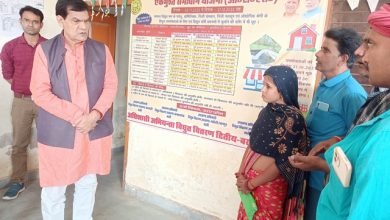MISSING TEETH: BHU STUDY SUGGESTS NOVEL THERAPEUTIC APPROACH
TOOTH AGENESIS IS A CONDITION WHERE TOOTH IS NOT DEVELOPED DUE TO MUTATION IN PAX9 GENE

• PROF. PARIMAL DAS & PRASHANT RANJAN FROM CENTRE FOR GENETIC DISORDERS STUDIED PAX9 MUTATIONS TO COME UP WITH A NEW METHOD TO CURE TOOTH AGENESIS
VARANASI: Tooth agenesis is termed as a condition where teeth are missing or are not developed due to mutations in PAX9 (one of the genes important for tooth development). This is one of the most common tooth abnormalities among several other conditions in dentition (development of teeth). According to some studies, about 11% people of the Indian population face the issue of tooth agenesis. Multiple research and works are being carried out across the world to determine the causes of tooth agenesis and possible cures to the problem. BHU researchers have conducted a first of its kind work in this regard. Prof. Parimal Das, Coordinator, Centre for Genetic Disorders, and his Ph.D. scholar Mr. Prashant Ranjan, have come up with a novel therapeutic approach to address tooth agenesis in children.
PAX9 is an important gene responsible for tooth development. Any kind of mutation in PAX9 may lead to tooth agenesis. The research team studied hundreds of mutant PAX9 variants (where tooth agenesis could have been prevalent). It discovered that out of all these mutant PAX9 variants, six were most deleterious, i.e. resulting in tooth agenesis.
The scientists then studied further these most deleterious PAX9 variants to find out a common unique region in PAX9 protein which was hampered in same way. It is to be noted that protein-protein interaction and DNA-protein interaction in PAX9 is necessary for tooth development. The in-silico (bio-informatics) analysis of these mutations revealed a unique region which did not participate in protein-protein interaction and DNA-protein interaction. These unique sites where protein-protein interaction and DNA-protein interaction was not taking place were used as a novel drug target for restoring the function of the gene.
The study paves way for new works towards drug development to address tooth agenesis in children. Prof. Parimal Das and Mr. Prashant Ranjan are now working on discovering the drug molecule based on the results of this study using human cell lines. The findings of the study have been published in the high-impact journal of the field “International Journal of Biological Macromolecules”.
Here’s the online link of the paper.
https://www.sciencedirect.com/science/article/pii/S0141813023002611?dgcid=author .
It is noteworthy that Prof. Parimal Das was the one who for the first time discovered that PAX9 mutation causes tooth agenesis. This work is considered a breakthrough finding globally.











